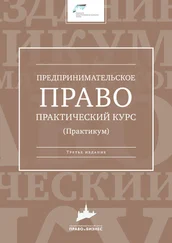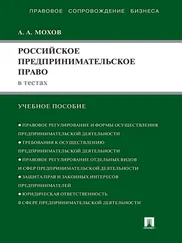– voidable contract – оспоримая сделка
– void contract – не имеющая юридической силы, ничтожная сделка
A contract is an agreement based on mutual promises between two or more competent parties to do or to refrain from doing some particular thing that is neither illegal nor impossible. The agreement results in an obligation or a duty that can be enforced in a court of law.
The contracting party who makes a promise is known as the promisor; the one to whom the promise is made is the promisee. The party who is obligated to deliver on a promise or to undertake some act is called the obligor. The contracting party to whom the obligor owes an obligation is called the obligee.
A legally complete contract will arise between two parties when all six elements of a contract are present: offer, acceptance, mutual assent, capacity, consideration, and legality. If any one of the six elements is missing, the transaction is not a legally complete contract.
1. An offer is a proposal made by one party to another indicating a willingness to enter into a contract. The person who makes an offer is called the offerer. The person to whom the offer is made is the offeree. Making the offer is actually the first step in creating the contractual relationship between the two parties. The offer must be seriously intended, clear and definite, and communicated to the offeree.
2. In most cases, only the specifically identified offeree has the right to accept an offer. Acceptance means that the offeree agrees to be bound by the terms set up by the offerer in the offer. In many situations, if the offeree changes any of those terms, the acceptance is not really an acceptance but a counteroffer.
3. If a valid offer has been made by the offerer and a valid acceptance has been made by the offeree, then the parties have agreed to the terms, and mutual assent exists between them. Mutual assent is sometimes called a meeting of the minds.
4. Capacity is the legal ability to enter into a contractual relationship. The law has established a general presumption that anyone entering a contractual relationship has the legal capacity to do so.
5. Consideration, i.e. the mutual exchange of benefits and sacrifices, is the thing of value promised to one party in exchange for something else of value promised by the other party. This exchange of valued items or services binds the parties together. If no consideration passes between the parties, then no contract exists.
6. The final element of a binding contract is legality. Parties cannot be allowed to enforce a contract that involves doing something that is illegal. Some illegal contracts involve agreements to commit a crime or to perform a tort. Other activities that are neither crimes nor torts have been made illegal by specific statutes. Among these activities are usurious agreements, wagering agreements, unlicensed agreements, unconscionable agreements, etc.
All contracts are agreements, but not all agreements are contracts. An agreement may or may not be legally enforceable. For example, an agreement to take a friend to a football game would not be legally enforceable because the friend has not given anything in exchange for that promise. To be enforceable, an agreement must conform to the law of contracts.
The general rule of contract law is that the parties to a contract must stand in privity to one another. Privity means that both parties must have a legally recognized interest in the subject of the contract if they are to be bound by it. Outside parties who do not have such an interest in the subject matter of the contract may not be bound by it. Their right to sue in the event of breach (i.e., broken or violated) of contract would also be called into question. An exception to the general rule of privity exists in cases involving warranties and product liability.
Contractual characteristics are divided into four different categories:
• valid, void, voidable, and unenforceable;
• unilateral and bilateral;
• express and implied; and
• informal and formal.
Any given contract could be classifiable in all four ways. Thus, a single contract could be said to be valid, bilateral, express, and formal.
A valid contract is one that is legally binding and fully enforceable by the court. In contrast, a void contract is one that has no legal effect whatsoever. A contract to perform an illegal act would be void. A voidable contract is one that may be avoided or canceled by one of the parties. A contract made by minors and one that is induced by fraud or misrepresentation are examples of voidable contracts. An unenforceable contract is one that, because of some rule of law, cannot be upheld by a court of law. An unenforceable contract may have all the elements of a complete contract and still be unenforceable.
A unilateral contract is an agreement in which one party makes a promise to do something in return for an act of some sort. In contrast, a bilateral contract is one in which both parties make promises. A bilateral contract comes into existence the moment the two promises are made. A breach of contract occurs when one of the two parties fails to keep the promise.
A contract can be either express or implied. An express contract requires some sort of written or spoken expression that indicates the desire of the parties to enter the contractual relationship. An implied contract is created by the actions or gestures of the parties involved in the transaction.
In some situations, laws require certain types of contracts to be in writing. A written contract does not have to be a long, formal, preprinted agreement. A written contract may take the form of a letter, sales slip and receipt, notation, or memorandum. A written contract may be typed, printed, scrawled, or written in beautiful penmanship.
One who knowingly accepts benefits from another person may be obligated for their payment, even though no express agreement has been made. Agreements of this type can be either implied in fact or implied in law.
Contracts implied by the direct or indirect acts of the parties are known as implied-in-fact contracts.
An implied-in-law contract can be imposed by a court applying reasons of justice and fairness when someone is unjustly enriched at the innocent expense of another. It is used when a contract cannot be enforced or when there is no actual written, oral, or implied-in-fact agreement. An implied-in-law contract is also called a quasi-contract. It does not result from the mutual assent of the parties such as an express or implied-in-fact contract.
Under common law principles, a formal contract differs from other types in that it has to be written; signed, witnessed, and placed under the seal of the parties; and delivered.
A special type of formal contract – contract of record – is not a contract in the true sense of the word because it is court created, and it does not have all the elements of a valid contract. Often, such a contract is one that has been confirmed by the court with an accompanying recorded judgment giving the successful litigant the right to demand satisfaction of the judgment.
An oral or written contract that is not under a seal or is not a contract of record is considered an informal contract (also known as a simple contract). An informal contract generally has no requirements as to language, form, or construction. It comprises obligations entered into by parties whose promises are expressed in the simplest and, usually, most ordinary nonlegal language.
Читать дальше
Конец ознакомительного отрывка
Купить книгу












